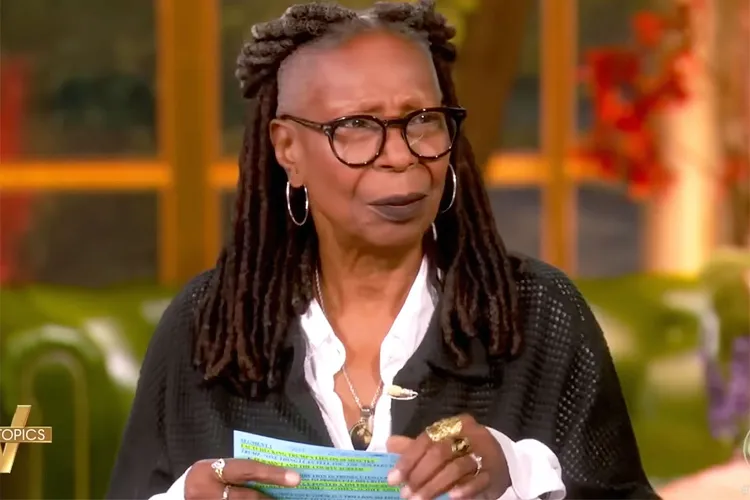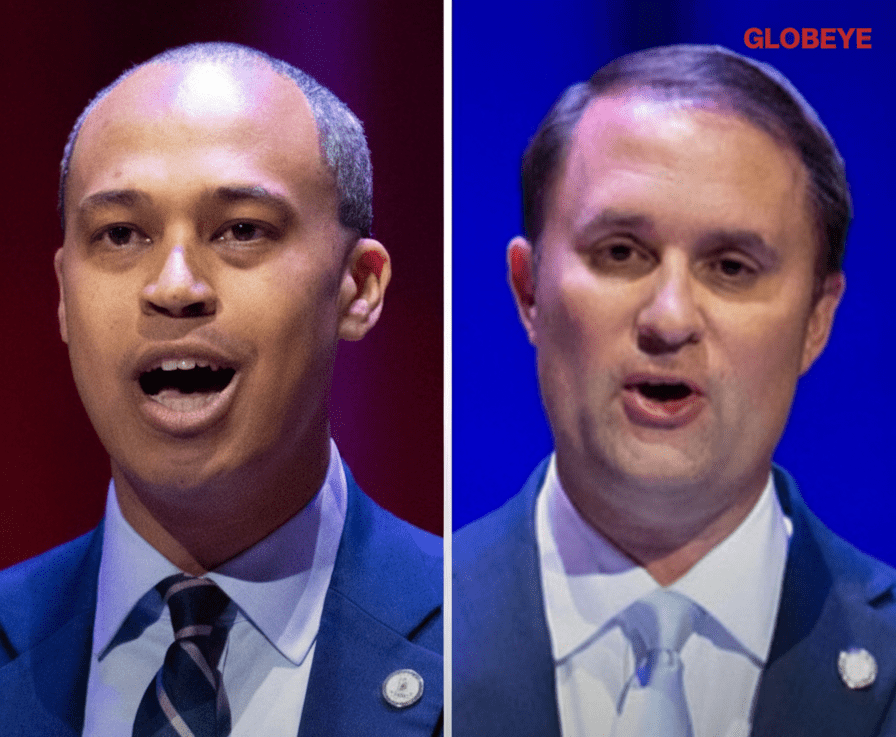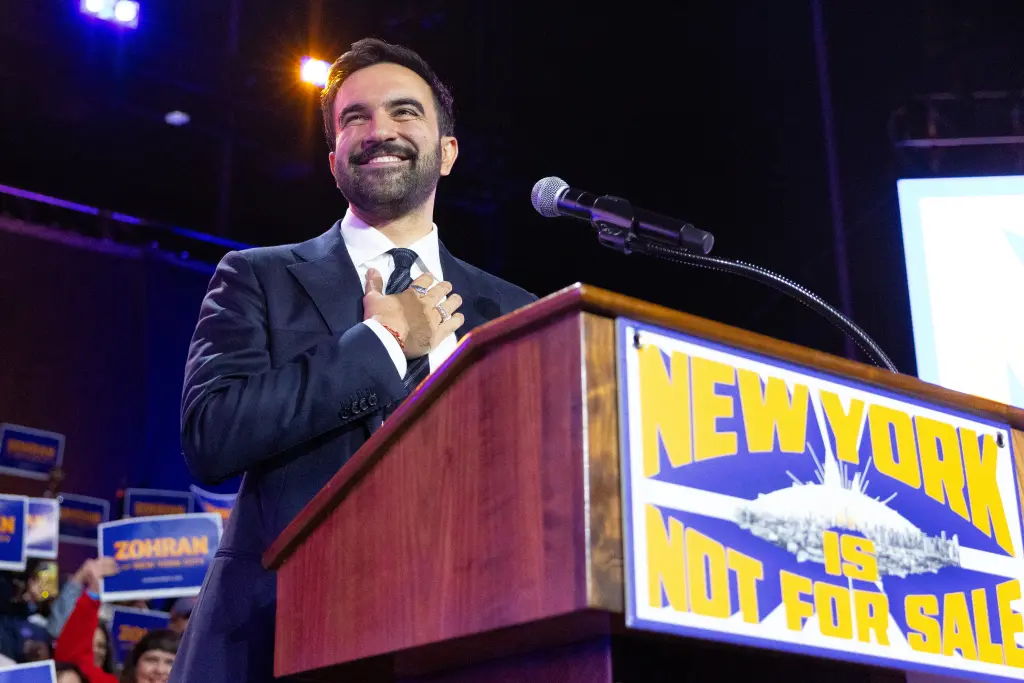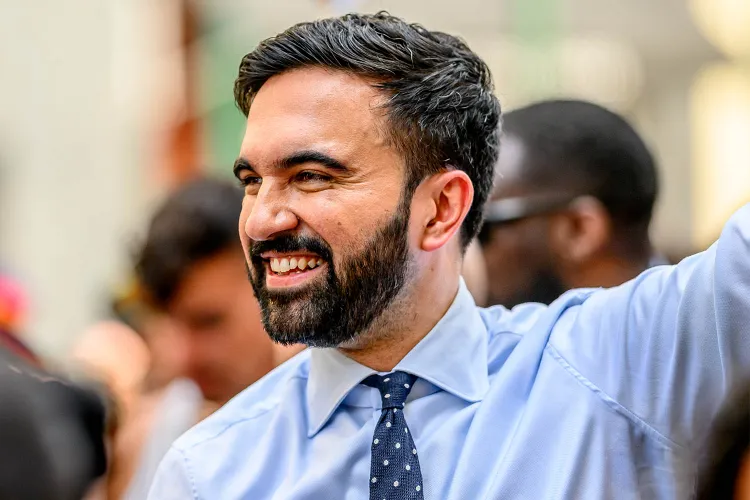Whoopi Goldberg Tears Up On-Air Legal Note During The View Debate, Accuses the Show of Losing “Nuance” When She Joked About Trump Using an Autopen
During the November 3, 2025 episode of The View, co-host Whoopi Goldberg made a sharp gesture of defiance — ripping up a note handed to her live on-air and demanding the audience acknowledge what she described as a joke. The moment unfolded amid a discussion of Donald Trump’s recent interview and the ongoing federal government shutdown, yet the spotlight quickly shifted to the internal dynamic at the talk-show desk.
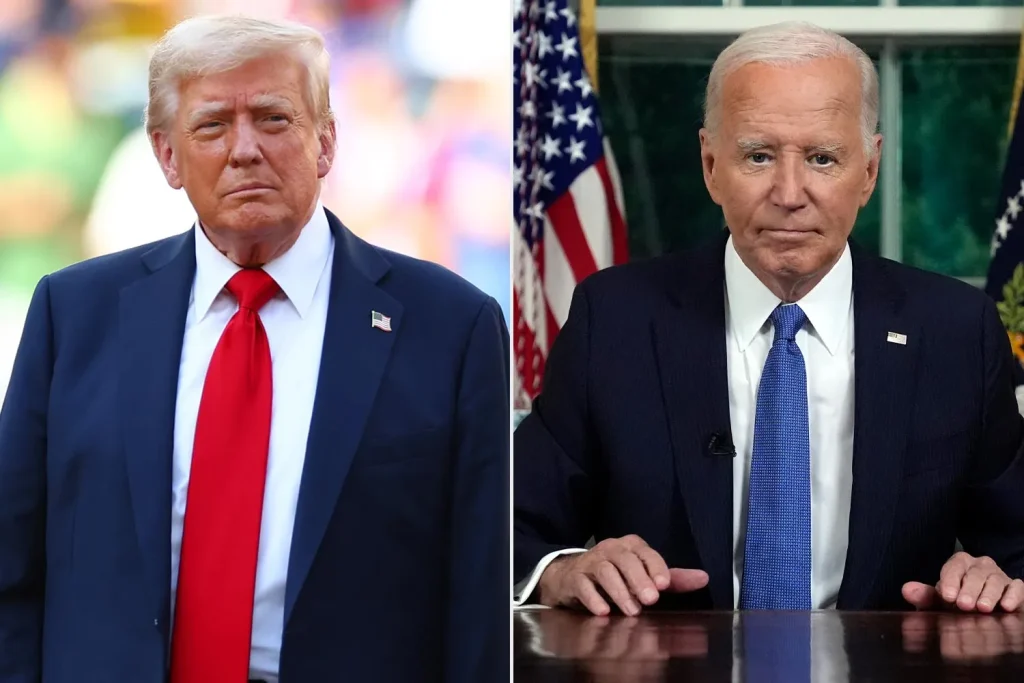
Goldberg, 69, delivered a joke referencing Trump and the notion of an “autopen” — a mechanical device capable of replicating signatures — saying Trump had used one. What followed was a legal clarification, passed silently across the table by fellow co-host Sunny Hostin, who wrote that in fact “we don’t know if Trump used an autopen.” Goldberg’s reaction was immediate: she looked at the note, asked aloud “What the hell? What?” and then tore the blue index card in half, calling the gesture “ridiculous.”
The moment resonated far beyond the usual morning talk-show riff. Goldberg seized on the incident to raise a broader complaint: that public discourse, including her own platform, is losing the ability to register nuance, humor, or irony. “The hardest thing about this job now is no one understands nuance,” she said, locking eyes with the camera, the audience, and her co-hosts. “You know when you’re making a joke.”
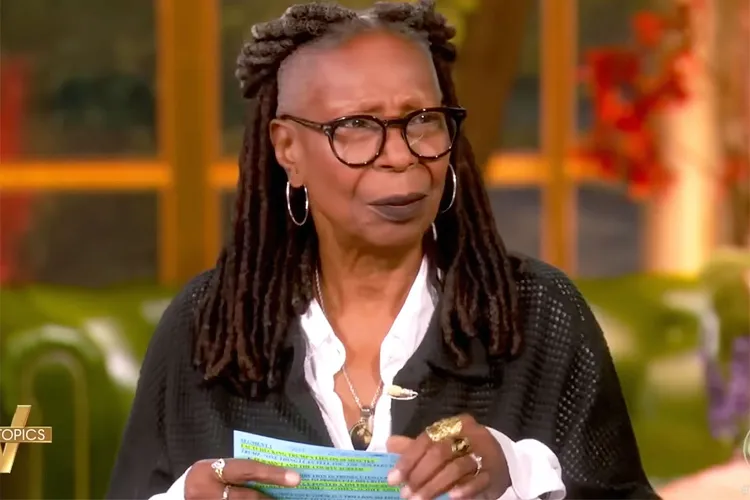
Hostin, a former federal prosecutor who often serves as the legal anchor at The View’s roundtable, has a history of intervening when comments veer into legally delicate territory. On this occasion, she slipped the note over to Goldberg quietly during the broadcast. Alyssa Farah Griffin, another co-host seated between them, quipped aloud, “I love when Sunny passes notes!” According to reports, Hostin’s note aimed to prevent potential defamation or factual liability for the network.
For viewers and critics, the moment offered two conflicting readings. On one hand, Goldberg was defending the right to comedic license — the idea that a joke does not require the same factual accuracy as a news report. On the other, the network’s caution reflects a climate of heightened sensitivity and legal exposure, particularly regarding commentary about political figures, where error could lead to reputational or regulatory risk.
Goldberg did not merely reject the note; she used it to make a statement. Tearing the paper, she said: “It was a joke! … Especially on this show. I’m very specific when I’m pointing stuff out. When I’m making jokes, you know when I’m making jokes.” The audience applauded, and the co-hosts visibly sat back.
The substance of her original remark challenged Trump’s claim in a 60 Minutes interview that he did not remember or know the name of the person he pardoned — Changpeng Zhao, founder of cryptocurrency exchange Binance. Hostin had raised questions about how Trump could claim he didn’t know the individual he pardoned — yet earlier media claims suggested an autopen may have been used to apply the signature. Goldberg’s joke — that “because he used an autopen” — was intended to lampoon the situation. Yet the legal posture underlying the note ensured the show did not implicitly confirm or deny whether Trump used an autopen.
Critics of the gesture interpret it through the lens of talk-show theatrics. Some saw the note-passing as harmless behind-the-scenes production practice. Others argue that the breaking of such a note on-air reveals friction between editorial freedom and network liability. Analysts say the seed of the controversy lies in a larger tension: live television, especially in a highly polarized media environment, often struggles to balance spontaneity with precision. Goldberg’s on-air tearing of a note became a scene about that very struggle.
The moment also offers a glimpse into the evolving posture of The View. Goldberg has been the anchor of the show for many years, yet her role and tone have been increasingly scrutinized as political punditry and culture criticism continue to intertwine. A moment like this — a breach of protocol, a symbol of resistance — suggests tension not just on-screen but behind the scenes regarding who controls the message.
For Goldberg herself, the episode underscored a key point about identity and platform. She positioned herself as someone willing to speak plainly, make jokes, challenge the status quo, and push back when asked to self-censor or retreat. “This is ridiculous,” she said about the note. In that moment, the tearing of paper became a visual metaphor for pushing back against what she regards as excessive caution.
Still, for viewers watching at home, the spectacle is more than a dramatic outburst. It is a reminder of how broadcast talk shows — once a place for debate and banter — are now enmeshed in legal structures, production safeguards, and ideological battles. The mixture of a joke about an autopen, a note about the autopen, the tearing of the note, the audience reaction, and the network’s disclaimer coalesce into a cultural snapshot of media in 2025.
Going forward, the incident amplifies questions about the boundaries of humor, the role of legal oversight in live television, and the obligations of commentators versus the rights of networks to protect themselves. It asks: how do we recognize a moment as a joke or as fact when television blurs the lines? What happens when a talk-show host treats legal caution as itself part of the story? For networks, the calculation is complex. For viewers, the tearing of the note may seem like pure drama — and perhaps it is. But it is drama within a context where words matter more than ever.
Ultimately, the visual of Goldberg, exasperated, tearing the paper while insisting “you know when I’m making jokes,” will likely be replayed and remembered as emblematic of a media moment. For her, it was a stand for comedic freedom; for others, it was a sign of live television’s fragility. Either way, it revealed that a talk-show table is not just furniture, but a front line in today’s cultural and legal discourse.
